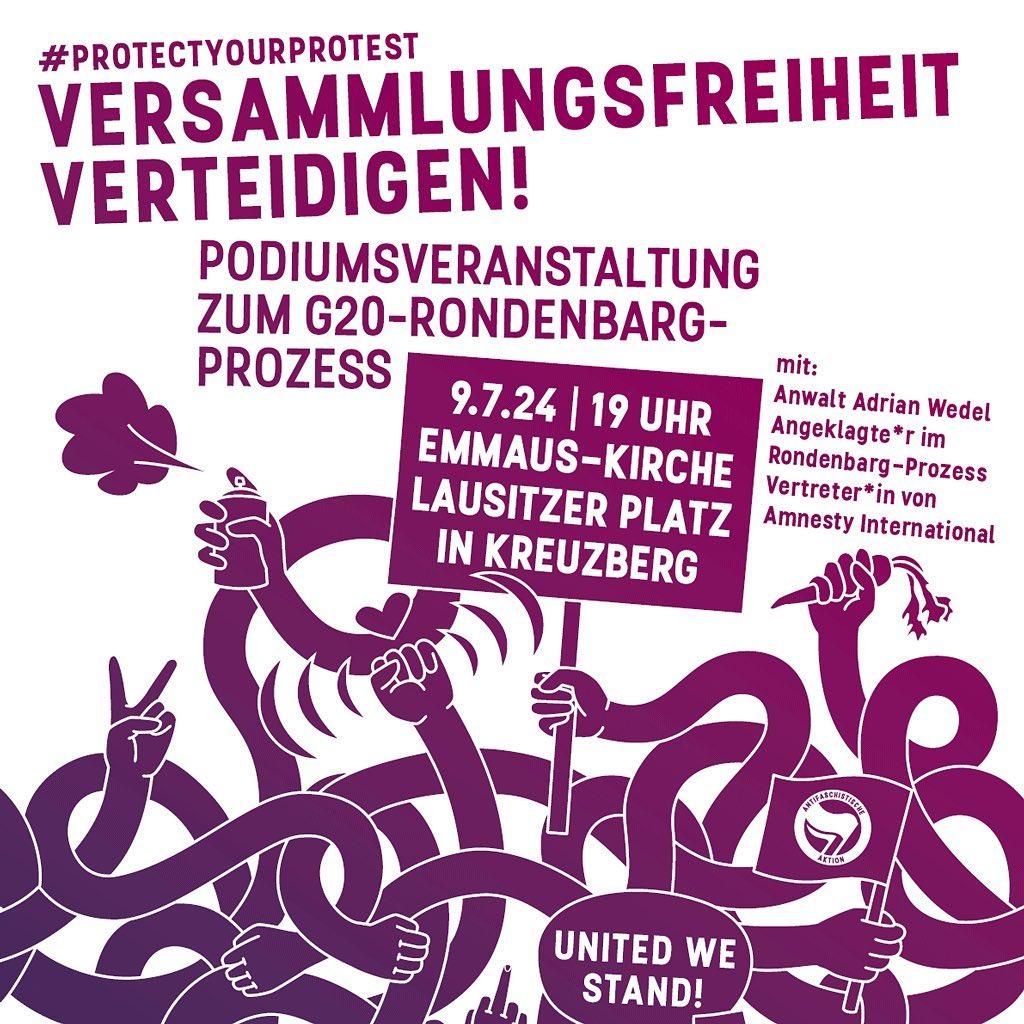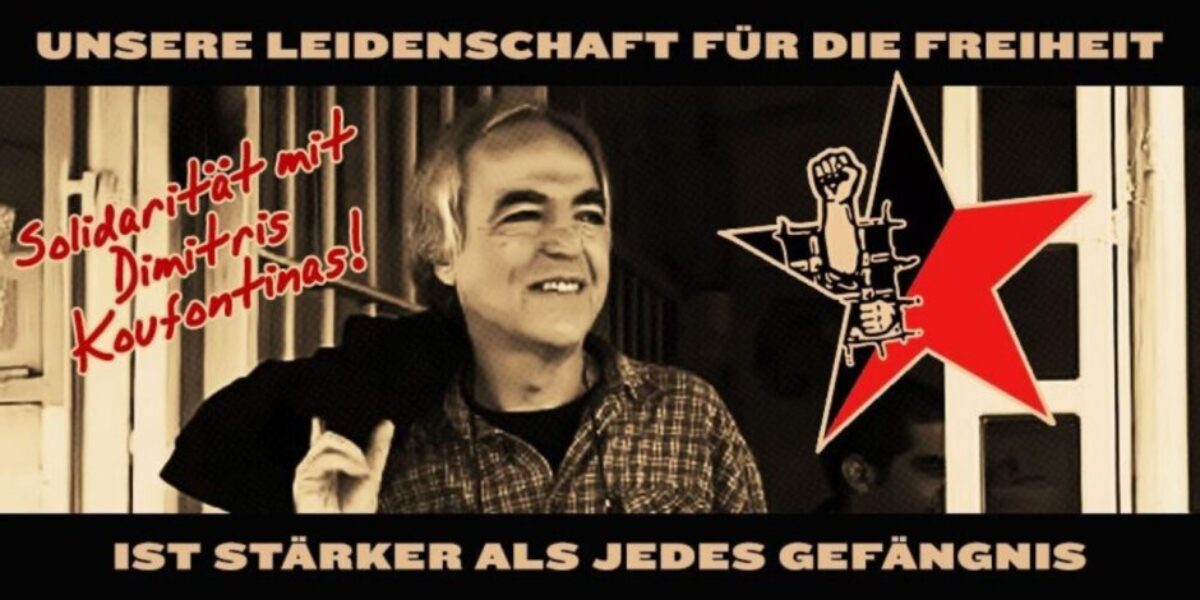
Dienstag, 09.07.2024 | 19:00 Uhr | *Emmaus-Kirche* Lausitzer Platz 10997 Berlin
Anreise: U1, U3, M29 Görlitzer Bahnhof | Bus 140 Waldemarstraße/Audre-Lorde-Straße
📣 Aufruf: https://www.instagram.com/p/C86uWwdMGEy/ – @il_berlin
#b0907 #ProtectYourProtest
🧑⚖️mit Strafverteidiger Adrian Wedel (RAV)
🙋einer Vertreter*in von @amnestydeutschland
🙋🏼♀️eine*r Angeklagten
veranstaltet vom Bündnis “Grundrechte verteidigen” und “Gemeinschaftlicher Widerstand”
Das Recht auf Versammlungsfreiheit wird in Deutschland zunehmend eingeschränkt durch Versammlungsverbote, repressive Gesetzgebung und Polizeigewalt. Klima-Aktivist*innen werden in Präventivhaft genommen, Antifaschist*innen in Leipzig über Stunden eingekesselt und pro-palästinensische Veranstaltungen und Demonstrationen verboten.
Mit dem seit Januar 2024 in Hamburg laufenden Rondenbarg-Prozess droht ein weiterer Angriff auf die Versammlungsfreiheit.
Ein Demonstrationszug mit etwa 200 Teilnehmer*innen war während des G20-Gipfels 2017 auf dem Weg zu den Blockadeaktionen in der Straße „Rondenbarg“ von der Polizei ohne Vorwarnung gewaltsam aufgelöst worden. 14 Personen mussten ins Krankenhaus. Insgesamt 86 Personen wurden angeklagt.
Zwei der damals Festgenommenen stehen nun seit Januar vor Gericht, der Vorwurf lautet schwerer Landfriedensbruch. Das Besondere an dem Fall ist, dass den Angeklagten keine eigenhändigen Taten vorgeworfen werden, ihre Anwesenheit sei strafbar.
Eine Verurteilung wäre eine weitere praktische Verschärfung des Paragrafen 125 Landfriedensbruch. In Zukunft müssten dann Demonstrationsteilnehmende damit rechnen, verurteilt zu werden, wenn es zu strafbaren Handlungen auf einer Demonstration kommt. Die bloße Anwesenheit wäre dann strafbar.
Wir wollen über die Lage der Versammlungsfreiheit in Deutschland, den aktuellen Stand im Rondenbarg-Verfahren sowie die Konsequenzen eines Urteils aus juristischer Perspektive sprechen.
📜 Panel event on the G20-Rondenbarg process in Berlin 📜
Tuesday, 09.07.2024 | 07:00 | *Emmaus-Kirche* Lausitzer Platz 10997 Berlin
Arrival: U1, U3, M29 Grlitzer Bahnhof | Bus 140 Waldemarstraße/Audre-Lorde-Straße
📣 Call: https://www.instagram.com/p/C86uWwdMGEy/ – @il_berlin
#b0907 #ProtectYourProtest
🧑⚖️ mit Criminal defence lawyer Adrian Wedel (RAV)
🙋 a representative of @amnestydeutschland
🙋🏼♀️ one defendant
organised by the alliance „Grundrechte verteidigen“ and „Gemeinschaftlicher Widerstand“
The right to freedom of assembly is being increasingly restricted in Germany through assembly bans, repressive legislation and police violence. Climate activists are taken into preventive custody, anti-fascists in Leipzig are surrounded for hours and pro-Palestinian events and demonstrations are banned.
The Rondenbarg trial, which has been ongoing in Hamburg since January 2024, threatens another attack on freedom of assembly.
During the 2017 G20 summit, a demonstration with around 200 participants was violently dispersed by the police without warning on the way to the blockade actions in Rondenbarg Street. 14 people had to be hospitalised. A total of 86 people were charged.
Two of those arrested at the time have now been on trial since January, accused of aggravated breach of the peace. What is special about the case is that the defendants are not accused of committing any offences themselves; their presence is a criminal offence.
A conviction would be a further practical tightening of section 125, breach of the peace. In future, participants in demonstrations would have to expect to be convicted if criminal offences were committed at a demonstration. The mere presence would then be a criminal offence.
We want to talk about the situation of freedom of assembly in Germany, the current status of the Rondenbarg proceedings and the consequences of a judgement from a legal perspective.
